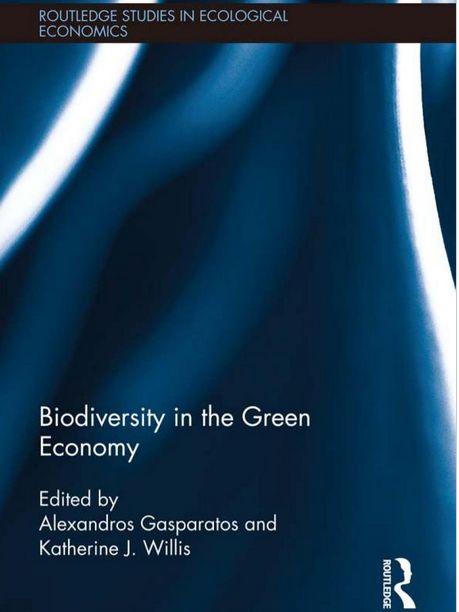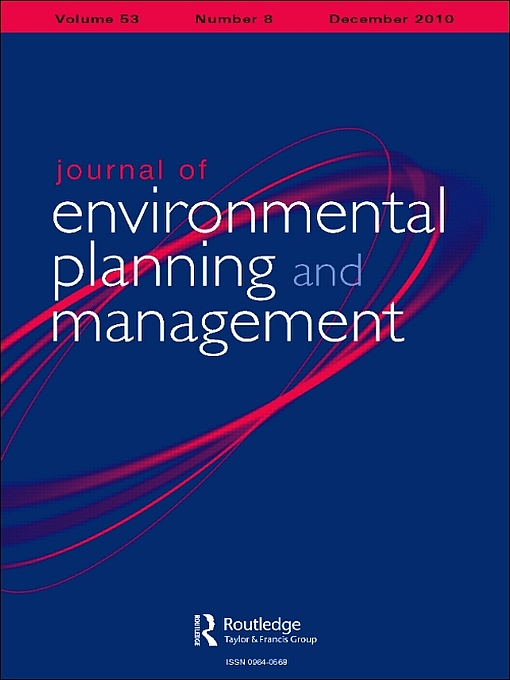Enabling Green and Blue Infrastructure Potential in Complex Social-ecological Regions (ENABLE)
- Project
- Duration
-
-
Green and Blue infrastructure (GBI) in cities holds large potential to effectively address emerging global challenges, such as climate change impacts, increasing urbanisation and declining access to nature, as it can deliver multiple societal, ecological and economic benefits in parallel. This multifunctional potential of GBI has only recently begun to gain weight in research, policy and planning and has yet to be fully unlocked. The EU-funded BiodivERsA project 'ENABLE' responds to this gap by utilizing a transdisciplinary systems approach to examine the relationship between social-ecological dynamics and GBI's potential to meet multiple goals, including biodiversity conservation and climate change adaptation. The four-year research project, funded by the BiodivERsA network, is led by the Stockholm Resilience Centre and supported by Ecologic Institute and nine other research partners.
Background
A network of strategically designed and functionally connected green (land) and blue (water) areas and features – also known as 'green and blue infrastructure' - holds the potential to enhance ecosystem resilience and ensure the continued provisioning of ecosystem services and goods to the benefit of human well-being and biodiversity alike. The EU Strategy on Green Infrastructure promotes investments in green infrastructure and the development of a Trans-European Network for Green Infrastructure in Europe to further develop, preserve and enhance GBI as a tool to address pressing environmental and societal challenges.
While many studies provide case-based evidence of the benefits of GBI, the full extent of its multifunctional potential is not yet established in research, policy and planning processes. Furthermore, the majority of studies consider GBI design and management as technical interventions and often insufficiently consider the cultural-social dimensions of socio-ecological systems. Such research is necessary to understand the full range of potential benefits of GBI as well as to ensure their delivery via a more collaborative and optimized design and implementation.
Main objectives
The overarching aim of ENABLE is to effectively address emerging global challenges by advancing the state of knowledge surrounding GBI in order to unlock its full potential. A particular focus is on developing and applying new analytical tools and approaches to evaluate GBI performance in a transdisciplinary context, including:
- identifying the fundamental relationships between GBI, biodiversity and ecosystem services in urbanized regions
- improving the understanding of human perceptions and cultural values of GBI and biodiversity
- investigating barriers hindering equal access to GBI benefits
- examining critical success factors to improve the analysis, design, management, conservation, performance and assessment of multiple benefits of GBI
To this purpose, five case study areas will be explored, located in Halle, Barcelona, Lodz, Stockholm and Oslo. Moreover, New York City will be included in the project as an external node for benchmarking.
Assessment results will inform the participatory co-design and co-production of local-specific GBI solutions in the study areas. Therewith ENABLE contributes to secure a sustainable and resilient future for humans and biodiversity in dynamic human-dominated landscapes across Europe.
Ecologic Institute in ENABLE
Within the transdisciplinary research framework, Ecologic Institute will lead the work on assessing socio-cultural perceptions and preferences of citizens as well as the valuation of different GBI options. Ecologic together with NINA will develop methodological guidance and support the five case study areas in conducting e.g. structured interviews, group-based deliberative valuation, Q methodology, online surveys and multi-criteria decision analysis. The assessments will have a specific focus on supporting services of GBI as habitat for biodiversity in urban areas. In addition, Ecologic will support the policy and institutional analysis in the case study sites and the formulation of policy options.






